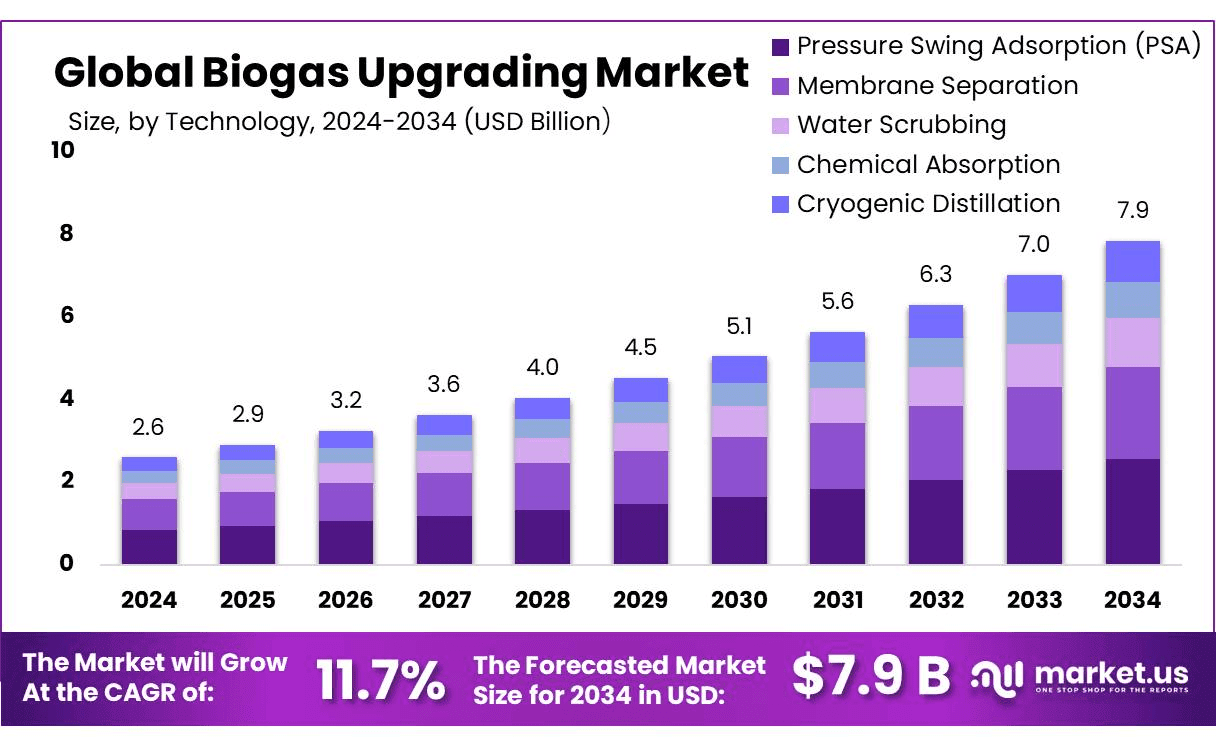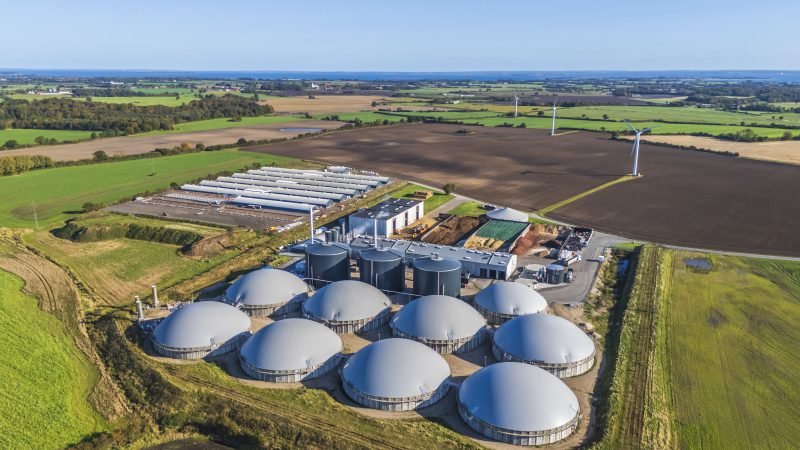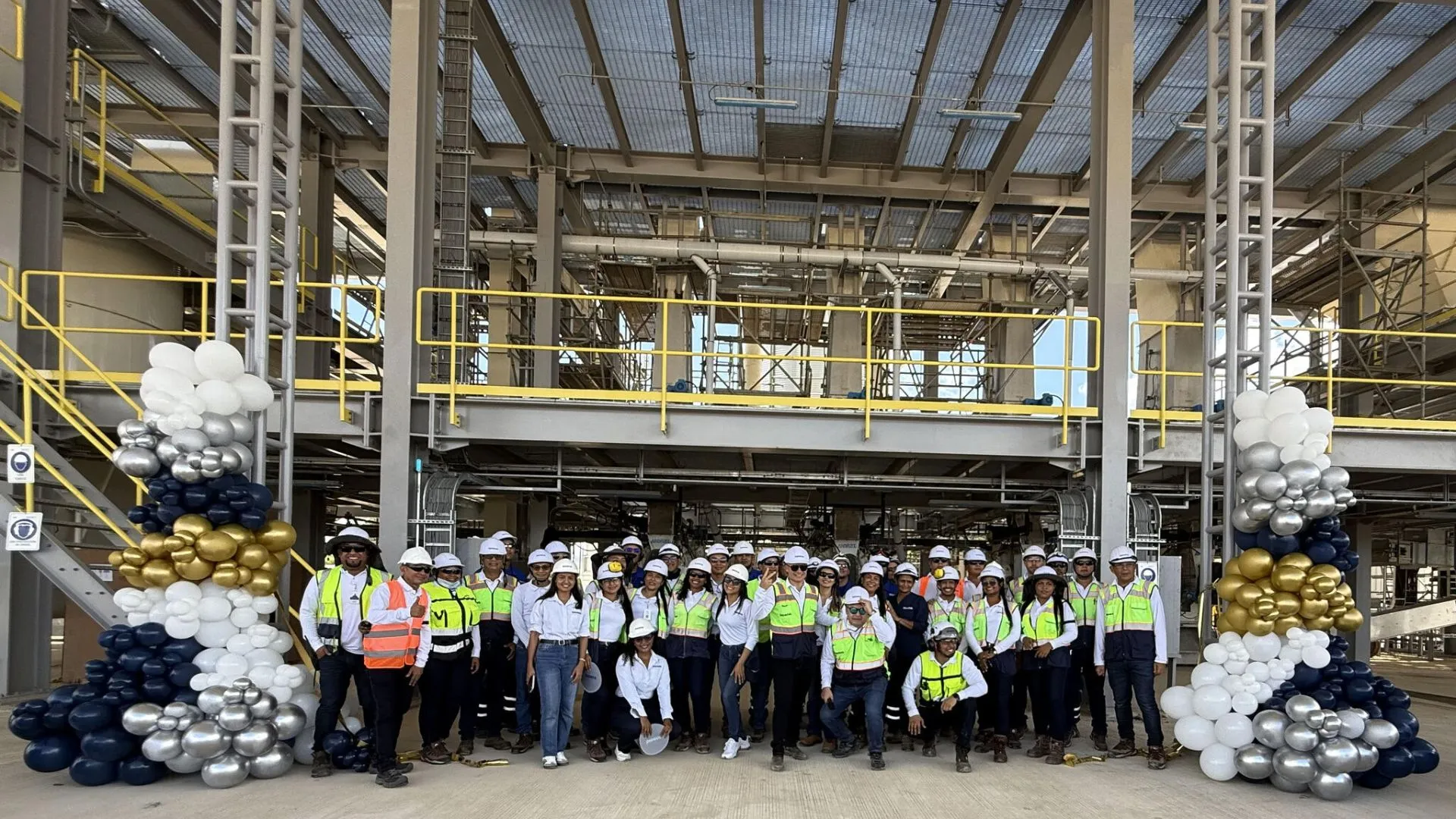The global biogas upgrading market is on a rapid growth trajectory, projected to increase from $2.6 billion in 2024 to $7.9 billion by 2034, reflecting a compound annual growth rate (CAGR) of 11.7%. This expansion is primarily fueled by the increasing demand for renewable energy and stricter environmental regulations.
In 2024, Europe continued to lead the biogas upgrading sector, holding a substantial 44.8% market share with a valuation of $1.1 billion. Within the market, Pressure Swing Adsorption (PSA) technology emerged as the most prominent, capturing 32.7% of the share. PSA’s solvent-free operation is particularly advantageous for small to medium-sized biogas plants, as it reduces both energy costs and environmental impact. Furthermore, agricultural residues represented a significant segment of the feedstock, accounting for 29.5% of the market. This is largely due to the availability of low-cost crop waste, such as corn stalks and wheat straw, which can be converted into biomethane.
Energy generation remains the largest end-use category in the biogas upgrading market, making up 49.9% of the share in 2024. Upgraded biogas, or biomethane, is increasingly used to fuel combined heat and power (CHP) systems and to supplement national gas grids, facilitating the transition to cleaner energy sources.
The growth of the biogas upgrading market is generating substantial economic benefits, especially in Europe and Asia. By converting agricultural waste into biomethane, rural areas can create new revenue streams, reduce costs associated with waste disposal, and generate employment in the construction and operation of biogas facilities. Additionally, this shift supports energy independence by decreasing reliance on fossil fuel imports. The development of biogas infrastructure also stimulates nearby industries, particularly in manufacturing and technology.
To capitalize on these trends, businesses in the biogas upgrading sector should concentrate on innovation and scalability. Investing in advanced technologies such as PSA and membrane separation can improve production efficiency and lower operational costs, making these systems more appealing to small and medium-sized facilities. Collaborations with agricultural cooperatives can ensure a consistent supply of low-cost feedstock, while expanding operations into emerging markets in Asia can meet the rising demand for renewable natural gas (RNG). Furthermore, offering modular and user-friendly biogas systems can attract rural and municipal clients. Aligning with government incentives and renewable energy policies will also provide essential funding and regulatory compliance support.
In terms of technological advancements, PSA technology remains a leader in the biogas upgrading market due to its effectiveness in separating carbon dioxide from methane through pressure variations across molecular sieves. This method is particularly effective for decentralized renewable energy systems, which are increasingly important for rural communities.
Agricultural residues continue to be a key feedstock for biogas production, with many initiatives in countries like India and Germany promoting the use of crop waste to minimize emissions and reduce open burning practices.
Regionally, the European biogas upgrading market benefits from ambitious renewable energy goals set by the European Union. In 2023, biogas production in Europe reached 22 billion cubic meters, significantly enhancing the region’s renewable energy contributions. The industry is projected to grow further, potentially supplying 101 billion cubic meters of biomethane to meet over 80% of the EU’s gas needs.
Recent developments in the sector include the expansion of companies like EnviTec Biogas, which has initiated new projects across Europe and Asia while introducing innovative membrane technology for biomethane production. Other companies, such as Xebec Adsorption and Greenlane Renewables, are also advancing their biogas upgrading systems and securing contracts worldwide.
Overall, the biogas upgrading market is positioned for robust growth, driven by technological advancements and increasing demand for renewable energy sources. This market not only supports economic development and energy security but also aligns with global sustainability efforts, ensuring a cleaner and more resilient energy future.




